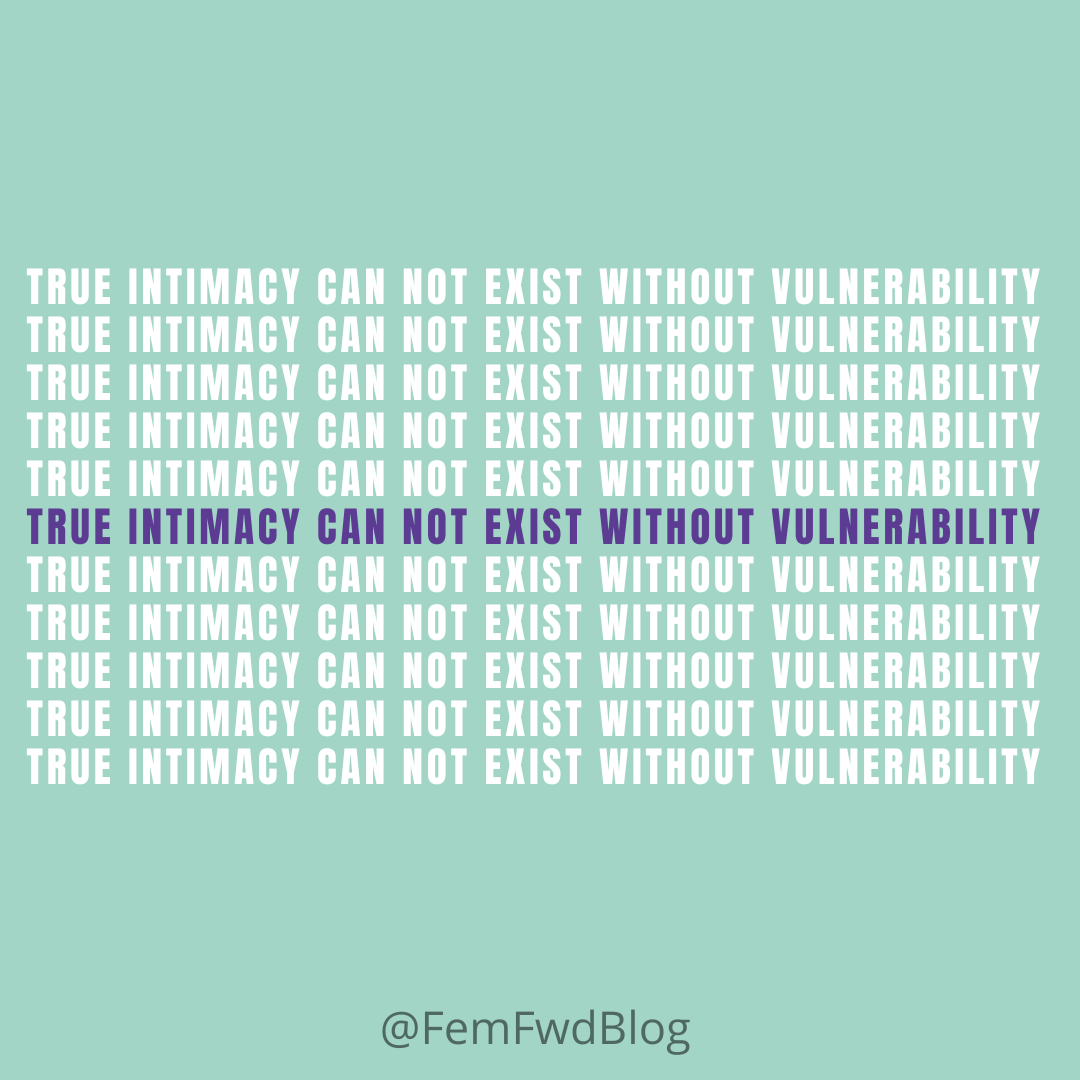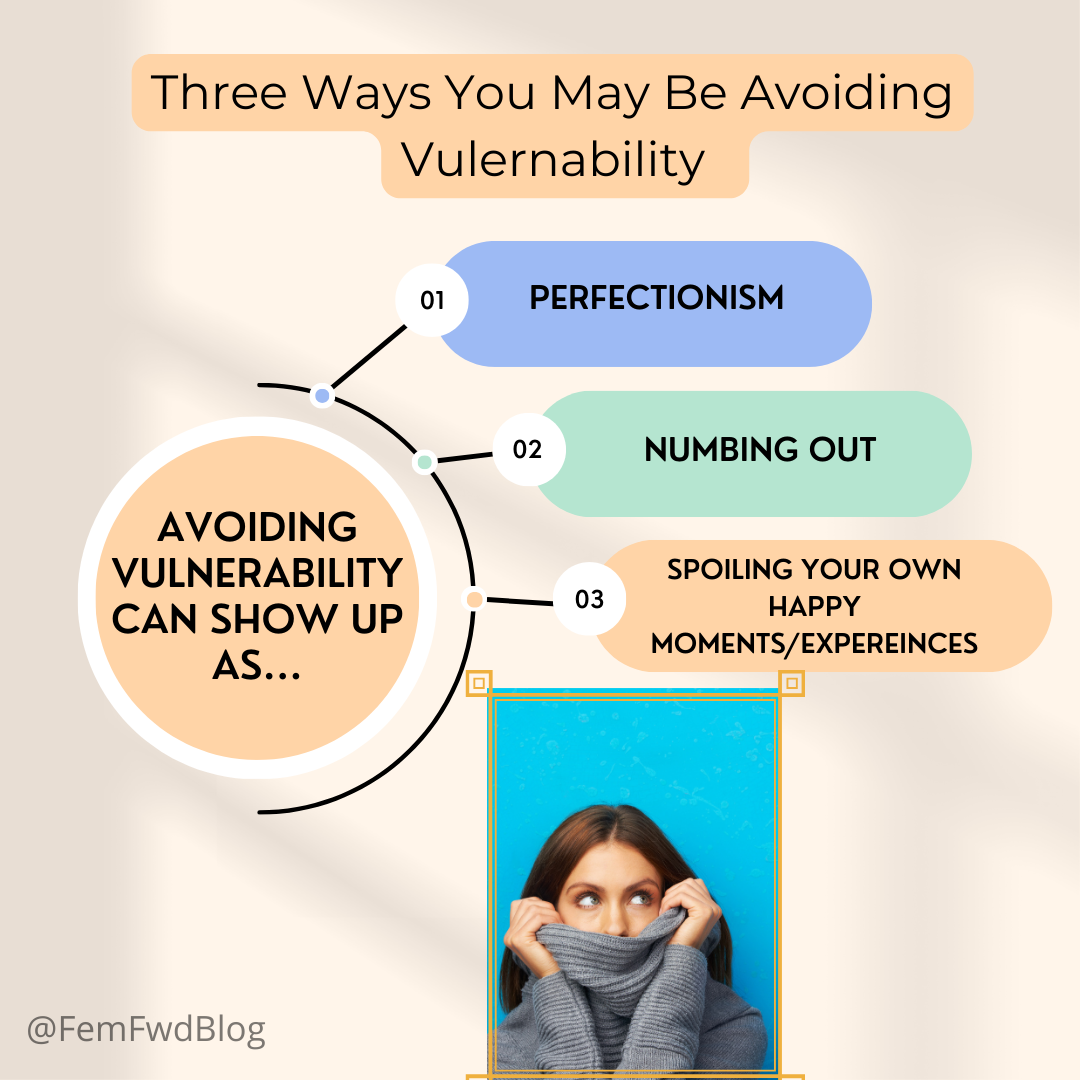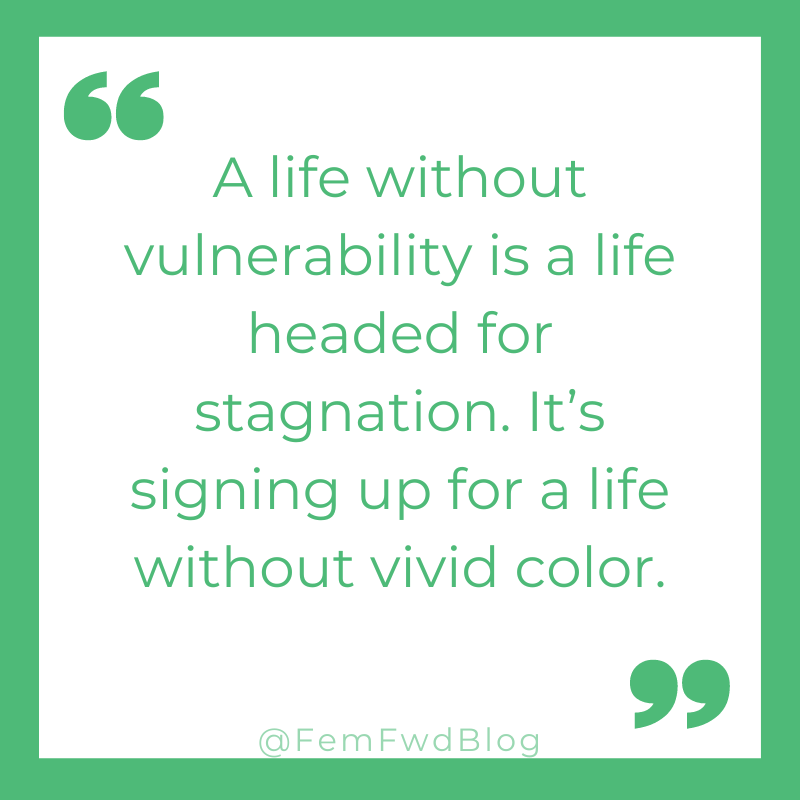Intimacy issues: How to be Vulnerable in Intimate Relationships
If you’re together long enough, you’ll learn everything comes in seasons and in phases, this includes the good stuff and the bad stuff. These seasons are influenced by external factors like a transition to a new job, birth of a child, loss of a parent, etc. There will be times your feel deeply connected, times where your coasting through too busy to notice how connected or not connected you are, and seasons where you feel flat out disconnected from your partner.
When that season of disconnection becomes the norm then we are in BIG trouble. That’s when folks show up in my clinical practice and are saying things like…
“I feel like we don’t even know each other anymore.”
“I don’t even know what to talk to them about.”
“We haven’t been on a date in God knows how long!!”
“I’ve been trying really hard to connect with them. They’re not listening or maybe they’re not interested in me anymore?”
“Sex? What’s that? We haven’t had that in months (sometimes years).”
“I’m not sure I am really attracted to them anymore.”
They express concerns that their partner isn’t interested in closeness or connection. They often feel insecure and wonder if their partner is just not interested in them anymore. They worry they may not longer be interested in their partner anymore. They worry that they’ve lost that spark.
For couples that have been together for a very long time this loss of connection can show up as the relationship being on auto-pilot. They are just cruising along with very little overt issues/conflict, but if we were to look more closely we would see that they also have very little intimate connection. Because this type of coasting is not overtly problematic, it often flies under the radar, even for the couple! Those are the divorces that feel surprising to others because they looked like everything was “fine.”
What is intimacy?
What does intimacy mean?
Despite how the term intimacy is used in popular culture, it’s not just about sex. In fact, it’s mostly not about sex. There are four domains to intimacy.
Types of Intimacy
Physical Intimacy Definition
This is what is usually associated with the word “intimacy.” So, it’s exactly how it sounds. This involves touch. So cuddling, kissing, holding hands, caressing, etc. Research has demonstrated that physical touch decreases loneliness.
Emotional Intimacy Definition
In this types of intimacy, we feel safe to share our deepest thoughts, concerns, worries, dreams, wishes, etc. We feel seen and adored for all of who we are. In order to grow emotional intimacy non-judgmental and attentive dynamic is required.
Mental/Intellectual Intimacy Definition
This is all about having stimulating discussion with one another. This may involve a healthy debating, learning about something new together, and charing your perspective on an issue.
Spiritual Intimacy Definition
This is all about discussion and support for one another’s ideas about higher purpose, meaning, and how to build a life worth living. Psychcentral makes an important observation in their article, and that is that this does not mean you believe the same things or belong to the same spiritual/religious community (if that’s how you meet your spiritual needs).
Emotional Connection: The Thread of Vulnerability
No matter the type of intimacy, it requires vulnerability. Vulnerability is hard. We often walk around in self-protection mode, even with our partners, our children, and our closest friends. Brene Brown is a professor and a researcher that specializes in vulnerability. In an interview about her book, Brene emphasized the importance of vulnerability in her statement, "vulnerability is the core, the heart, the center of meaningful human experiences.” She defines vulnerability as "uncertainty, risk, and emotional exposure." Furthermore, “It's that unstable feeling we get when we step out of our comfort zone or do something that forces us to loosen control.” Furthermore, Ester Perel, added to this definition, sharing “… that if we want our partner to be vulnerable with us, we have to accept that true vulnerability is not a mandate. It’s a possible outcome that grows out of closeness and trust. And there is more than one way to develop that.”
Intimacy Issues
Here’s what makes vulnerability hard and therefore creates intimacy issues. Vulnerability puts us at risk of experiencing some really uncomfortable feelings, such as shame, guilt, anxiety, ambiguity, sadness, etc. As humans we will work very hard to avoid discomfort. Unfortunately, what is also true, is that we only expand our comfort zones/expertise/competence by practicing and dipping our toe into things in which we are not skilled. So growth requires discomfort. It requires vulnerability. A life without vulnerability is a life headed for stagnation. It’s signing up for a life without vivid color.
According to Brene Brown there are three common ways that avoiding vulnerability shows up for folks…
Perfectionism
2. Numbing out/Disconnection
3. Sabotaging happy moments by catastophizing/preparing for the worst
A lot of times for folks difficulties with vulnerability start in childhood and this is usually because of their childhood environments. For example, for people who grew up in homes that were physically, sexually, or emotionally abusive, vulnerability was not an option. Self-protection mode was the way to survive (and a very appropriate choice for the situation). For others the environment may have been full of chronic invalidation feelings or outright emotional neglect. So these kids learned that if they do share, either no one will be there to listen or it will be communicated that their emotions are “wrong” or don’t matter. This is so important because these experiences can affect how we see ourselves, it can affect out self-esteem and elf-worth. As Brene Brown shared in her Ted Talk, the ability to be vulnerable requires you to believe that you are worthy of a deep connection.
Feel like you need more than this article to help you relationship? Check out our relationship workshop!
How to be vulnerable
I think a lot of folks think that vulnerability means spilling your guts to another person. While sharing deep thoughts and feeling is certainly important, let’s expand the way we are thinking of vulnerability. You might be surprised by the ways in which you are already vulnerable.
Vulnerability Definition: What is Vulnerability?
There is vulnerability even in kind gestures/statements. For example, my mom used to leave us little notes with her signature smiley face on the bottom. It was her ways of saying “Hello there! I’m thinking of you and I love you.” Anytime my partner travels somewhere he always brings me something back. It’s nothing big, but it’s little things that he knows I would really like (i.e., dark chocolate bar made in the city he visited, a bar of soap, little handmade cards). So there’s vulnerability in being attentive and actually acting on that attentiveness.
Do you express vulnerability with your partner through kind gestures/statements? Are you willing to put your loving feelings about them out there and make it known to them? Genuine expression of our innermost thoughts/feelings about our partner, without expecting reciprocation in return, is vulnerable.
Know Thy Self
As cliche as it sounds the first step in getting comfortable with being vulnerable with your partner is self-knowledge. Start by getting to know what experiences have shaped how vulnerable you are willing to be in relationships. Next, you need to know what your deepest thoughts, feelings, fears, and desires are in order to communicate them and in order to ask for what you need. So you need to be self-validating first. Accept what comes up without judgement. Tell your inner critical to settle down and take a back seat.
Here are some key ways that you can invite vulnerability from your partners:
Be fully present and engaged with your partner in the moment. When we are formulating what we are going to say next, we are not listening. We will miss cues and opportunities to provide our partners with the corrective experience that true attunement brings.
Talk less and listen more
Gain awareness of the patterns in your relationship and commit to changing the maladaptive ones
Take full ownership when we have erred and invest in the repair with your partner.
Ask questions aimed at gaining a deeper understanding of their emotional experience.
Be willing to share your emotional experience. This models that the relationship is safe enough for them to share, too.
Relationship Advice For Women
As always, thanks for reading! We are all about teaching people, especially women, who to have more satisfying relationships. Sign up for our newsletter to receive our newest blogs right to your inbox!





